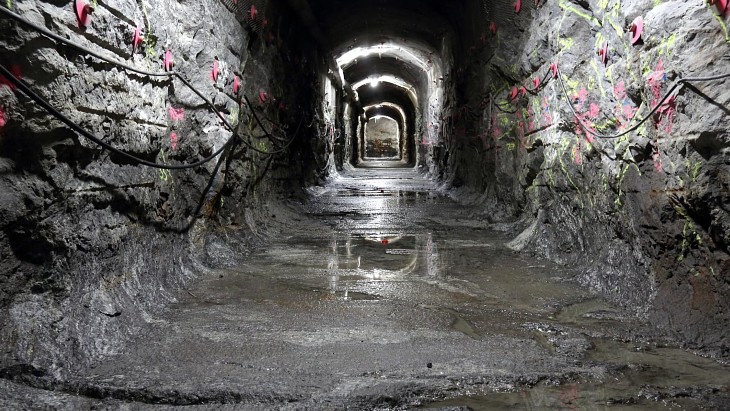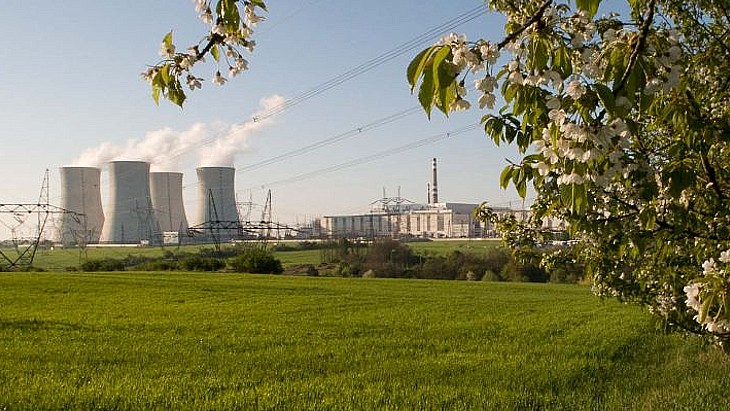Czech utility CEZ has informed Areva that its bid for the contract to construct two more units at the Temelin nuclear power plant has been disqualified as it "failed to meet statutory requirements." Areva said it will appeal the decision, which leaves Westinghouse and a consortium led by AtomStroyExport vying for the contract.
.jpg) |
| How the expanded Temelin plant could appear (Image: CEZ) |
CEZ has told Areva that its bid did not meet all the statutory requirements under the Czech Republic's Public Procurement Act and that the company "has not fulfilled some other crucial criteria defined in the tender."
CEZ spokesman Ladislav Kriz said: "CEZ has informed Areva in detail about the specific grounds for excluding their bid; the reasons are of both commercial and legislative nature and concern crucial requirements." He added, "Since the bidder has a right to object to this decision, the public may be informed about the specific reasons only when all options for potential appeals have been used so that the award procedure is conducted in a correct and fair manner. Other bidders have not yet been found to have failed to fulfil the awarding entity's requirements."
Areva said that it will "file an objection according to the rules stipulated in the tender conditions." The company said that it "is determined to understand the reasons for this announcement. Areva firmly believes it has met all the tender criteria."
Areva added that it "is confident its offer to CEZ is the most competitive one and its commitment to the Temelin completion project remains absolute."
Tender process
The tender process for the new Temelin units was launched in August 2009. In November 2011, CEZ released detailed tender documentation defining the full scope of the public contract, including commercial and technical requirements for the supply of two complete nuclear power plant blocks on a full turn-key basis, including the nuclear fuel assemblies for nine years of operation. At the same time, it formally invited three candidates - Areva; a consortium between Škoda JS, AtomStroyExport and OKB Gidropress; and Westinghouse - to submit their bids for Temelin units 3 and 4.
At that time, CEZ said that all bids and plans must comply with the relevant legislation of the Czech Republic as well as applicable EU requirements and safety requirements defined by the International Atomic Energy Agency (IAEA) and the Western European Nuclear Regulators' Association (WENRA). CEZ also stipulated that the plans must also be licensed in the vendors' home countries or in one of the EU Member States.
Areva put forward its EPR design, as licensed in Finland and France, and undergoing licensing in the USA and UK. The AtomStroyExport consortium's bid is based on Gidropress' MIR-1200 third generation VVER model under construction at Leningrad Phase II and Novovoronezh Phase II. Westinghouse's AP1000 has design certification in the USA and has interim approval in the UK.
All three contenders submitted documentation supporting their respective bids in late June 2012. Each vendor submitted a commercial proposal, a technical proposal and a proposal for the supply of nuclear fuel.
CEZ expects to select the reactor supplier and sign the construction contract by the end of 2013. The three candidates have all formed partnerships with Czech companies to ensure a high level of localization.
The Temelin site is already home to two VVER-1000 reactors, in operation since 2000 and 2003 respectively. Four earlier VVER models have also been in operation at Dukovany since the mid-1980s. Original plans for two further VVER units to be built at Temelin were put on hold by the Czech government in 1990.
Researched and written
by World Nuclear News






_53514_33880.jpg)






